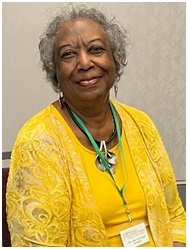The Heersink School of Medicine is looking forward to hosting the next lecture in the Step AHEAD series, “Voices For Our Fathers.” This important panel discussion will feature family members of men who were unwittingly involved in the U.S. Public Health Service Study of Untreated Syphilis in the African American Negro Males, conducted in Tuskegee and Macon County, Alabama, from 1932 to 1972. Lillie Tyson Head
Lillie Tyson Head
President, Voices For Our Fathers
The study involved the observation of 625 African American men who were divided into two groups, Syphilitic and Control. Both groups were told that they had “Bad Blood.” They were misled into believing they were receiving free medical care. In reality, they were denied treatment, even after penicillin became a widely accepted cure in the 1940s. This study remains a stark example of ethical violations in research.
Voices For Our Fathers Legacy Foundation
Lillie Tyson Head, the founding president of the Voices For Our Fathers Legacy Foundation, has dedicated her efforts since 2014 to honoring the memory of her father and all of the men affected by the study.
Growing up, Head and her family were unaware of the study’s existence until it was exposed by Jean Heller, an AP reporter, in July 1972. It wasn’t until President Bill Clinton’s apology in 1997 that its implications began to surface again in their lives. Inspired by her daughter’s career in public health, Head became increasingly vocal about the injustices faced by the men involved, transforming her family’s trauma into a mission for honor and education.
“After learning more about how the men were treated and how they were denied medical treatment, it really got me stirred up,” Head said. “We wanted to change the narrative about who they were. They were human beings, and they deserved better.”
Since its founding, the Voices For Our Fathers Legacy Foundation has partnered with various organizations, including the National Institute of Health, CDC and Prevention, CDC Foundation, Tuskegee University’s National Center for Bioethics in Research and Health Care, the Millbank Memorial Fund, and the California Association of African Americans Superintendents and Administrators, to amplify their mission.
“I’ve had the opportunity to meet a lot of people in public health that are willing to assist in dismantling existing racial practices that have gone far too long in the health field. We’re working really hard to use [our fathers’] platform and sacrifices as a way to honor them.”
In addition to advancing health equity and building trust in health care, the Voices For Our Fathers Legacy Foundation honors this legacy by providing scholarships to descendants as they advance their educational careers. Since founding, they have offered 35 scholarships, encouraging recipients to consider careers in medicine or public health.
Looking ahead: what we can learn from the panel
Next week, Head will be joined by panelists and other descendants Omar Neal and Joyce Tyson Christian, with Steven Sodeke, Ph.D., as moderator, to share their unique perspectives as family members of men involved in the study.
Neal, the former Mayor of Tuskegee, Alabama, has a distinguished career in leadership, having improved the fiscal stability of his city and fostering international relationships with West African countries. His experience in public service, communications, and motivational speaking adds a dynamic perspective to the discussion. Christian, the daughter of Freddie Lee Tyson (#547) and sister of Head, is a retired registered nurse with over 43 years of service in the Air Force and school health nursing. She brings a deep, personal connection to the legacy of the study and its ongoing impact on her family.
Sodeke, a renowned bioethicist and professor at Tuskegee University, has dedicated his career to ensuring that medical advancements benefit all groups equally. As the moderator, his expertise in bioethics and health policy will guide a thoughtful exploration of this historical study and its implications for modern medical practice.
Head hopes attendees will gain a renewed understanding of the study’s legacy and its ongoing impact.
“Science, in my opinion, is meant to improve humanity, not to degrade or destroy it,” Head shares, emphasizing the need to dispel common misconceptions about the study and to rebuild trust in the health care system. “Some people were hesitant to get vaccinated [during the COVID epidemic] because they believed the men [in the study] were injected with syphilis, and that was not true.”
Head also wants audiences to know that these men were more than just subjects; they were fathers, brothers, and community members deserving of respect. As medical practices continue to advance and improve, she encourages practitioners to learn from the past to drive future change.
“When you see something that is wrong, speak out about it. Even if it happened years ago, you still speak out and change it,” she suggests. “You can’t take the humanity out of the work you’re doing.”
The panel discussion will be hosted Tuesday, October 8, at noon in the Hill Student Center Theater. All faculty, staff, and students are invited to engage in this rare discussion and gain insights from those who have a unique perspective on this painful chapter in our history.
To register for the panel discussion, click here.